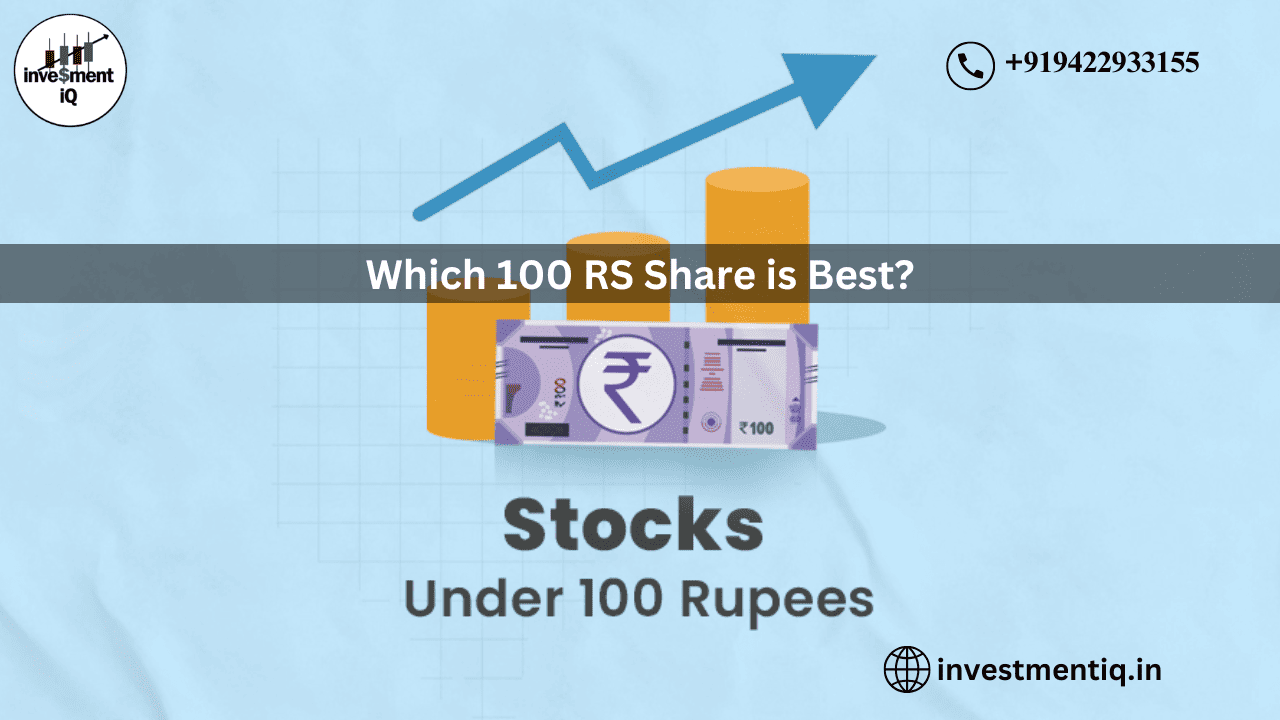Choosing the best stocks might be like traversing a maze if you’re new to investing. Even though you may be familiar with stocks, shares, and market movements, it might be difficult to know where to begin, particularly when looking at stocks that are valued at about 100 RS. Do not be concerned! You’re not alone, and we’re going to help you take that crucial first step toward financial success and literacy by breaking it down into manageable chunks today.
Understanding Stock Market Basics
To lay a strong foundation, let’s quickly go over some key ideas before delving into which 100 RS share is ideal. In order to raise money, businesses sell shares of their company on the stock market. Investors purchase these shares in the hopes that the company will do well and increase the value of their investment.
The pricing of shares vary depending on a number of circumstances, and they are usually purchased and sold in large quantities. Economic conditions, industry health, corporate performance, and market trends all have an impact on stock values. The fact that stock prices fluctuate every minute due to buyer and seller activity is essential for novices to comprehend.
Key Concepts to Keep in Mind
- Market Trends: The general direction of the stock market is referred to as market trends. Are prices going up or down? You can choose the optimum times to buy and sell by being aware of market trends. For example, stock prices are typically rising in a bull market and falling in a bear market. Making better investing choices can be aided by being able to recognize these tendencies.
- Risk vs. Reward: The risk increases with the possible return. You want to balance both as a novice. Because they could provide a balance between risk and possible reward, stocks priced at 100 RS might be an excellent place to start, particularly if the firm exhibits strong growth potential.
- Diversification: Avoid taking on too much at once. You lower risk by distributing your assets throughout several industries and businesses. Other stocks may make up for losses if one performs poorly.
- Stock fundamentals: Seek out equities that are cheap, which means that their market price is less than their actual worth. This can be evaluated by examining a company’s revenue, managerial caliber, position in the market, and potential for expansion.
How to Choose the Best 100 RS Share for You
Now that you understand the basics, it’s time to explore how to pick the best stock in the 100 RS range. Here’s what you need to do:
- Seek Out Robust Companies: The finest stocks are frequently those that have strong leadership, sound financials, and room to grow. Investigate the company’s future business strategies, profit margins, and sales growth.
- Verify Consistency: A business is more likely to maintain strong performance in the future if it has a history of steady growth and profitability. To determine the stability of the company, look at its performance over the last five to ten years.
- Industry Trends: At different points in time, some industries do better than others. For instance, tech firms might do well when innovation is taking place, but energy equities might do well when oil prices are rising. Keep an eye on market trends to identify areas for expansion.
- Fundamentals of a Stock: Keep an eye on the sentiment of the market toward a specific stock. Is it receiving bad news, or are people enthusiastic about it? Even though sentiment is only one component, it can provide you with information about the stock’s potential near-term performance.
Real-World Example
Let’s look at a practical example: The share price of Company ABC is 100 RS. The business is a leader in its sector and has a solid track record of increasing profits. Examining its financial documents reveals that it is introducing cutting-edge items and entering new markets. Although the stock price has been rising gradually, wider market corrections are currently causing it to slightly decline.
Is now the ideal moment to purchase? It might be. You can see this as a chance to purchase at a discount and take advantage of the stock’s recovery if you think the company’s possibilities for future growth outweigh the current decline.
Practical Tips for Beginners
- Start Small: You don’t need to invest heavily at first. To become accustomed to the procedure, start with tiny doses.
- Keep Up to Date: Read financial news, participate in investment forums, and pay attention to professional viewpoints. This will assist you in keeping up of business advancements and market trends.
- Use Tools: To filter firms based on important parameters like earnings, growth rate, and market price, use stock-screening tools. You can save time and concentrate on possible winners with the aid of these tools.
- Be patient: Investing is not a way to make rapid cash. The growth of your money is a gradual process that involves fluctuations.
Take the First Step Toward Financial Literacy
Keep in mind that starting is the greatest method to begin investing. Don’t let your fear of making mistakes to stop you. All investors, regardless of their level of success, have been novices at some point. You are laying the groundwork for long-term financial success by concentrating on understanding and putting basic concepts into practice.
Check out our website’s cutting-edge tools and resources if you’re prepared to further your education. Explore our professional risk management tips, go deeper into stock research, and have access to resources that will help you monitor and increase your investments.
Final Thoughts
Finding a “get-rich-quick” opportunity is not the goal of selecting the greatest 100 RS share for your portfolio; rather, it is about making deliberate, well-informed decisions that will increase your wealth over time. You can position yourself for success by doing study, diversifying your investments, and comprehending market patterns.
What, then, is preventing you from beginning your financial literacy journey? Your financial confidence will increase as you start small and learn as you go!
you may be interested in ths blog here:-
What’s the difference between Treasury bonds, notes, and bills
Can I Open a Brokerage Account for My Child
What is the Contrast Between Favored Stock and Normal Stock?




